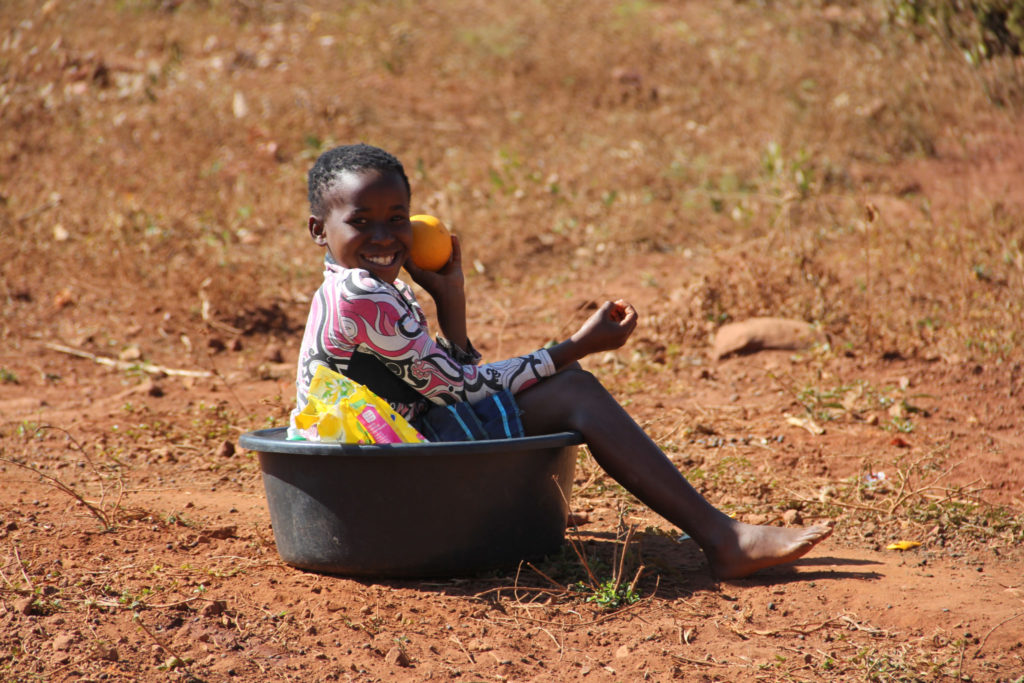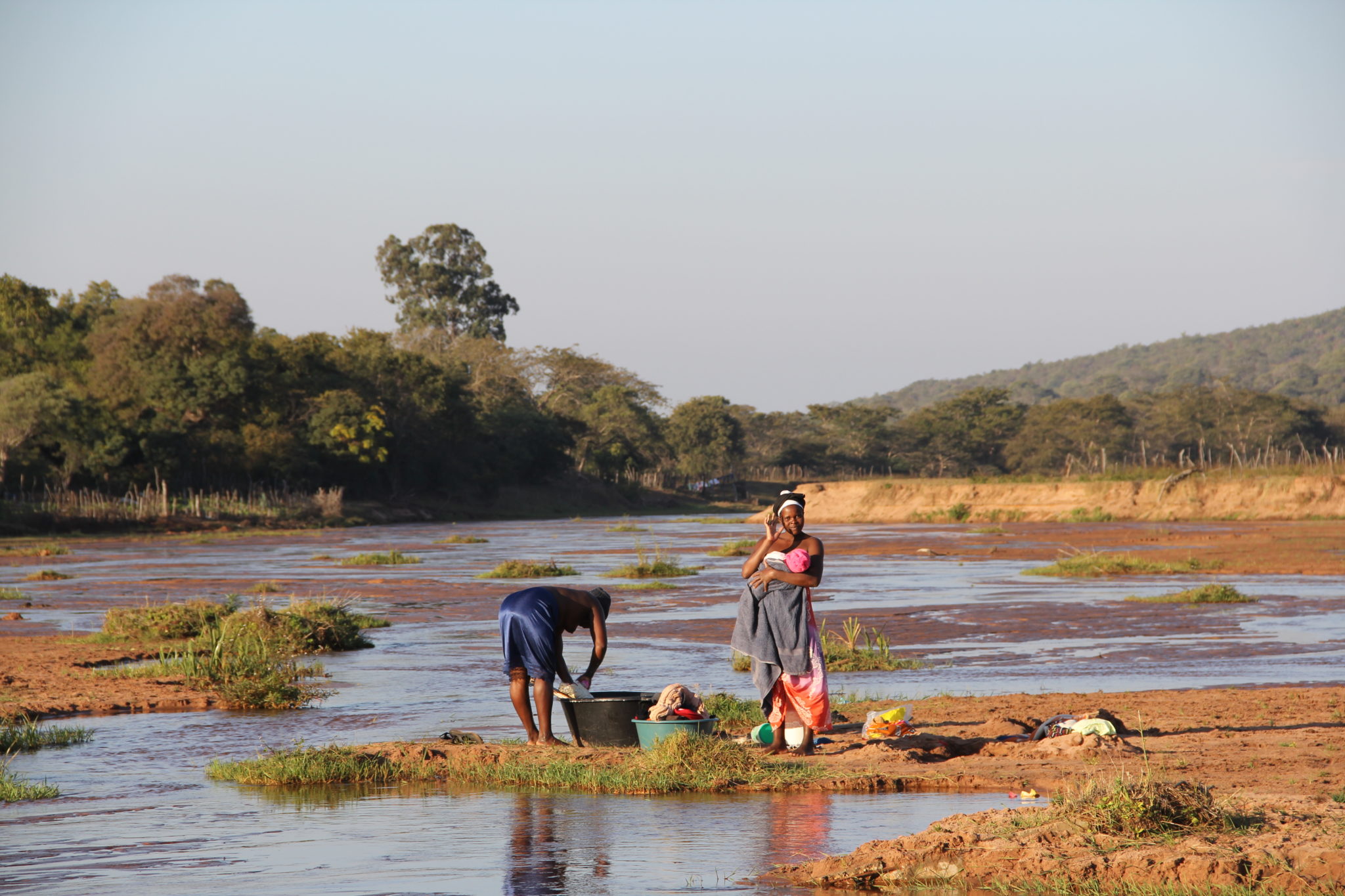
Photos by Melissa McHale
A tiny plane slowly circled the runway, waiting for a meandering sounder of warthogs to move out of the way before takeoff.
As it flew from rural Hoedspruit, on the edge of South Africa’s most abundant wildlife preserves, to the bustling capital of Johannesburg, Natalie Miller gazed out the window and resolved to return.
It was June 2018, and the biomedical sciences sophomore had just spent four weeks living with local families and conducting social and ecological research. Miller was part of an inaugural study abroad trip to South Africa’s rural HaMakuya region conducted by two faculty members and 17 other students from Colorado State University.
“It was the individuals I met that really stuck in my mind,” Miller said. “They are incredible people living in very challenging circumstances and have so many exciting ideas for their communities.”
Four years later, Miller is president of Pivotal Places, a nonprofit she and others from the trip founded to promote community-led change and long-term sustainability. Its name refers to harnessing the power of the critical moment when a community is on the verge of success yet still hanging in a precarious balance – when action or inaction can make it or break it.
A catalyst for change
Located in South Africa’s Limpopo province and bordering Kruger National Park, the HaMakuya region is a beautiful area with a troubled history. Its rural communities were formed out of apartheid-era displacement and remain severely underdeveloped.
The members of this small rural community speak Venda, one of the least-spoken of South Africa’s 11 official languages, and live in traditional rondavel huts. “Most of these communities are made up of women and children, as men often relocate to cities for work and send money back,” Miller said.

Pivotal Places was born out of a decades-long relationship with the HaMakuya region formed by David Bunn, a native of South Africa, and his wife and colleague Melissa McHale. Bunn and McHale, both former faculty members of CSU’s Warner College of Natural Resources who are now at the University of British Columbia, spent years conducting research on water resources, urban-wildlife conflict, and social-ecological systems in the region.
The 2018 study abroad trip engaged CSU students in Bunn and McHale’s research. The students gathered information on water quality and access, conducted interviews to better understand the lives of community members and the factors impacting their access to water, and helped set up and monitor game cameras to learn more about human-wildlife interaction on the border of the country’s largest wildlife preserve.
“Every community here has different water access issues, from broken pumps to areas where pumps are turned on only once or twice a week,” Miller said. Water quality issues run rampant in the area as well and include high levels of E. coli, nitrates, and nitrites.
Upon their return to CSU, Bunn, McHale, Miller, and other students mobilized to launch Pivotal Places with a mission that prioritizes community partnerships and linking research with development to co-create more resilient communities and healthier ecosystems. Miller graduated in 2020 with a degree in biomedical sciences and a minor in global environmental sustainability. In addition to serving as the organization’s president, she is also pursuing a graduate degree in global medicine at the University of Southern California. Madison Campos, who graduated in 2019 with a degree in animal sciences and a minor in biomedical sciences, serves as the organization’s secretary, and Joseph Burke, who graduated in 2021 with a degree in natural resource tourism and a minor in business, serves as the organization’s intern.
In addition to working with the community to find innovative solutions for access to clean water, Pivotal Places aims to help strengthen HaMakuya’s tourism infrastructure. The Tshulu Wilderness Camp, a remote ecotourist camp on the banks of the Mutale River, is a key source of income for the region, as are homestays from visiting students and researchers. The CSU study abroad trip provided a year’s worth of income to the families they stayed with through the Tshulu Trust, a HaMakuya community-led organization, which Bunn also helped found.
Pivotal Places now partners with the Tshulu Trust, and its first formal project was to help make the Tshulu Wilderness Camp a more sustainable source of income for the community by fundraising for solar panels, water pumps, bed linens, and cooking utensils. When COVID-19 hit and thrust the community into deeper poverty, the organization shifted its focus to delivering pandemic relief aid through the Tshulu Trust until its original mission can be resumed.
Beyond data

While more than 20 years of research has been done in the HaMakuya region, all of the data gathered remains just that – data.
Pivotal Places is working to change that.
“There is a really big disconnect between academic research and actionable change,” Miller said. “I am an academic and I understand that research is super important, but there needs to be a vehicle for implementing solutions to all of the problems that academic research identifies.”
Miller hopes to see Pivotal Places expand to help other vulnerable communities around the world become more sustainable and resilient and is passionate about the One Health approach to solving problems in human, animal, and environmental health.
“One Health is the future of science – because the world needs it to be,” Miller said. “What is the point of doing research if you’re not going to do something about it?”